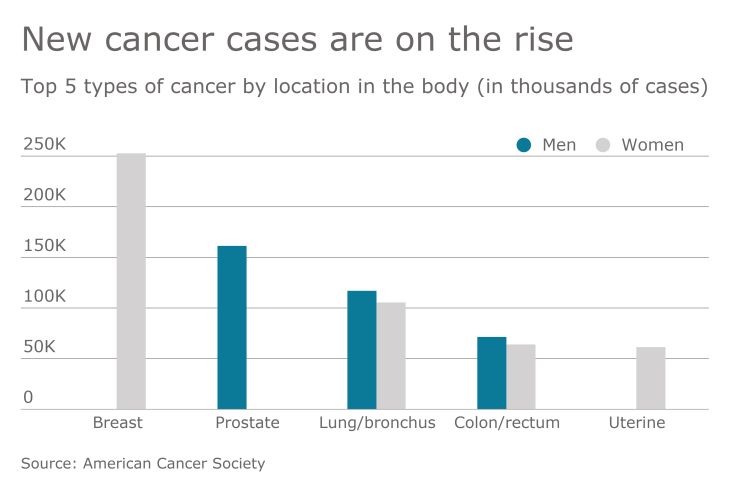As cancer survival rates improve, employment laws have not kept pace. According to the
So, let me backtrack a decade. In 2008, I was diagnosed with cancer. Even with family and peer support, I was scared and alone. And, I was in disbelief. I was also lucky. My doctors found the cancer early and I was successfully treated with surgery.
Even though I was CEO of Clark Consulting at the time, our company offered no cancer support beyond health insurance for me or any of our employees. Yet, our company was in the business of creating and marketing executive retirement and retention programs with life insurance products.
While we provided financial security for many, my feeling of insecurity as a cancer survivor has never left me. Starting in 2017, working with a team in the insurance, genomics, life insurance, employee benefits and healthcare industries, we have partnered to enable employers to provide comprehensive cancer support services to their employees. It is help, should cancer strike.

I am not alone. Surveyed cancer patients wished there was more personalized support in managing the disease, with 35% wishing another cancer expert was there as an advocate, and 36% wanting better support in understanding long-term side effects of the treatment. In addition, 31% of those queried said they did not have an expert to talk to about worries and fears, 53% responded they could have benefited from practical advice and support in dealing with the side effects of treatments.
Statistics from the
More people are living with cancer than dying from it, and many are back at work within 12 weeks. While I was lucky and could financially afford treatment at the time of my cancer, many employees are not so lucky. And, most are coming back to work within a few months.
As employers, what are we doing to assure that our greatest assets people — come back as productive employees? They will arrive scared and scarred.
While employment laws may not have kept up with cancer survival rates, employers can step in to close the gap.
First, take a holistic approach. Cancer is a disease that can obviously affect health, but it can also affect employment, finances, housing, transportation, dependent care or more. Recognize that and understand the complexity and enormity of dealing with cancer for employees.
Second, make certain you understand the laws such as the ADA, the Family Leave & Medical Act, and the Genetic Information Nondiscrimination Act and its implications regarding disease. It is best to make certain there is a thorough understanding with the help of an employment lawyer.
Third, realize that cancer affects people differently. Be flexible about how you interact with your employee. Also, understand that when a person returns from cancer treatment, they will want time to have some flexibility to go back to doctors for check-ups and scans. Plus, they may require more days to work remotely, if appropriate.
Finally, if possible, provide additional support. Today, employers can help employees with cancer support services that include advanced DNA testing, dedicated cancer support specialists, and digital medical records management.






